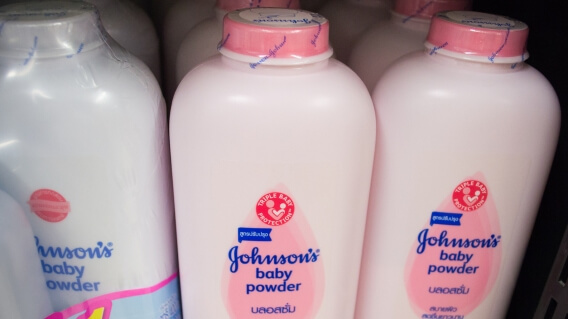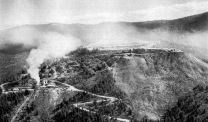J&J Facing Scrutiny from Congress, Black Women’s Organization
Legislation & LitigationWritten by Tim Povtak | Edited By Walter Pacheco

Plaintiff attorneys and congressional leaders have renewed their push against Johnson & Johnson and its allegedly toxic, talc-based powder products, questioning motives and demanding answers, according to various media outlets.
A committee of attorneys filed a restraining order in U.S. District Court in Wilmington, Delaware, July 27, hoping to prevent J&J’s potential plan to unload its talc-related liabilities on a new subsidiary that would subsequently file for bankruptcy.
The next day, the U.S. House of Representatives Committee on Oversight and Reform delivered a letter to J&J’s chief executive demanding information on any company plans to declare bankruptcy through a subsidiary.
In a separate case, civil rights attorney Benjamin Crump filed a lawsuit in the Superior Court of New Jersey alleging that Johnson & Johnson marketed its talc-based baby powder specifically to Black women, despite knowing its dangers.
Pushback For Possible J&J Bankruptcy Plan
The pharmaceutical giant is currently facing almost 30,000 lawsuits in the U.S., the vast majority of which are blaming asbestos-contaminated talc products for causing ovarian cancer. A small number of the lawsuits involve malignant mesothelioma, a rare cancer caused almost exclusively by exposure to asbestos fibers.
J&J has continued to insist its products are safe to use and has aggressively fought lawsuits in court and the verdicts against it.
“We stand behind the safety of our products as decades of independent scientific testing has confirmed that our talc is safe and does not cause cancer,” a J&J spokeswoman told The Wall Street Journal.
The bankruptcy plan through a subsidiary, which J&J has refused to confirm, could change its legal standing dramatically, potentially saving the company billions of dollars.
This controversial legal strategy would open a path for J&J to settle thousands of current and future claims for asbestos exposure and avoid jury trials.
Bankruptcy strategies have been used in the past by several businesses facing a large number of claims involving asbestos, including Koch Industries Inc.’s Georgia Pacific LLC in 2017.
If used, the move likely would lead to protracted bankruptcy proceedings and reduced asbestos compensation awards for plaintiffs. Much would depend on how the subsidiary was funded.
The subsequent pushback from the committee representing the talc-injury claimants and the letter from the House of Representatives came as no surprise. A House subcommittee has been listening to claimants since 2019 when it first held hearings on alleged carcinogens in baby powder.
“We seek to learn how those who have suffered harm from your product could be affected by your reported plan [on bankruptcy],” Congressman Raja Krishnamoorthi, chairman of the U.S. House of Representatives Committee on Oversight and Reform’s subcommittee, wrote in the letter to Johnson & Johnson.
Women’s Group Claims Racial Bias in J&J Marketing
Crump filed the lawsuit against J&J on behalf of the National Council of Negro Women, a nonprofit that advocates for and empowers women of African descent.
At a news conference announcing the filing were several women who lost family members to ovarian cancer. In the lawsuit filing, the organization claimed that some of its members have used Johnson’s Baby Powder for years and now have ovarian cancer.
“Internal documents demonstrate that J&J targeted advertisements to Black women, knowing that Black women were more likely to use the powder products and to use them regularly,” the complaint stated. “These talc powder products were not safe, however.”
J&J responded to the filing with an emailed statement to several media outlets, vigorously defending the safety of its product and any hint of targeting Black women.
“The accusations being made against our company are false, and the idea that our company would purposely and systemically target a community with bad intentions is unreasonable and absurd,” the statement said. “Johnson’s Baby Powder is safe, and our campaigns are multicultural and inclusive.”
Talc Studies and Verdicts Have Been Mixed
The issue of asbestos-contaminated talc products stems from where the two naturally occurring minerals are found near the Earth’s surface. Often they are mined in close proximity, causing serious concern.
Testing for asbestos in talc has been widely disputed. Some studies have shown no clear link between the use of talc and ovarian cancer. Others have shown opposite results.
Jury verdicts also have been contrasting. Some have sided with J&J. Others have awarded plaintiffs large settlements.
Earlier this year, the U.S. Supreme Court rejected a request from J&J to consider overturning a $2.1 billion award to 22 women who blamed asbestos-contaminated talc for causing their ovarian cancer.
J&J continues to cite a report in the Journal of the American Medical Association in 2020 that found “no statistically significant link” between the use of talc-based powder and the risk of ovarian cancer.
Yet J&J also announced the same year that it would stop selling its talc-based baby powder in the U.S. and Canada, citing a decline in consumer demand and “misinformation” about the safety of its product.
According to 2021 regulatory filings with the U.S. Securities and Exchange Commission, Johnson & Johnson set aside $3.9 billion for future talc-related litigation.






